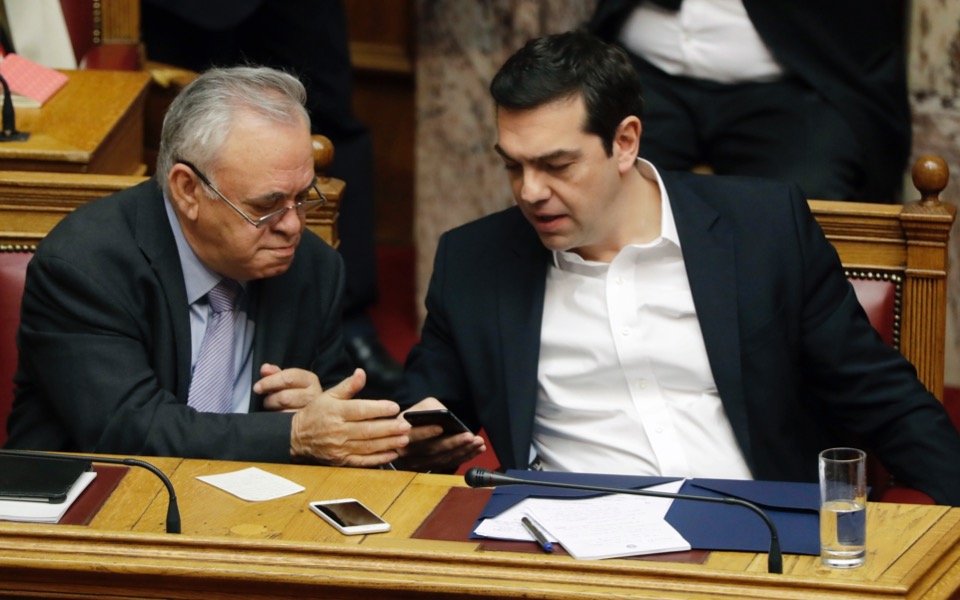Gov’t turns focus to next round of reforms as Berlin shifts on IMF

Prime Minister Alexis Tsipras on Tuesday appealed to his ministers for “hard and focused work” in the wake of a “beneficial” Eurogroup agreement, setting the scene for another parliamentary vote on further measures that Athens must legislate to secure fresh rescue loans.
Despite the upbeat mood in Athens, officials in Brussels appeared doubtful about the prospects for Greek debt relief and the role of the International Monetary Fund in the Greek program.
In a speech to his cabinet on Tuesday, Tsipras spoke of “a beneficial result for the Greek economy” while his coalition partner Panos Kammenos heralded “Greece’s exit from an era of creditors.”
Sources close to the premier said the additional legislation would be drawn up in the coming days so that the next Eurogroup on May 24 can sign off on Greek loans.
Government spokeswoman Olga Gerovasili said the disbursement of the next loan, expected to be around 5.7 billion euros, will likely be in June.
The additional reforms, which are to be bundled into one bill, include the creation of a new privatization fund, new rules regarding the management of nonperforming loans held by Greek banks and the introduction of a string of “indirect” taxes, including levies on fuel, coffee and Internet connections.
The government must also pass legislation introducing a mechanism for automatically cutting state spending if Greece misses budget targets.
Once the next parliamentary vote, and the next Eurogroup, are behind him, Tsipras is expected to carry out a reshuffle, probably in late June when SYRIZA is expected to hold a party conference.
The leader of the main opposition New Democracy, Kyriakos Mitsotakis, dismissed the government’s jubilatory mood as “histrionics,” claiming that the government was signing a “fourth memorandum.”
In Brussels on Tuesday, three European officials told Kathimerini that they believed the IMF will not participate in Greece’s third bailout with funding but with more of an advisory role. Meanwhile Germany’s position vis-a-vis the IMF appears to have changed, Kathimerini understands.
To date, German officials had indicated that the IMF would have to fully participate in the Greek program for the Bundestag to approve the release of further funding.
But at Monday’s Eurogroup German Finance Minister Wolfgang Schaeuble said Greece’s bailout review could be completed in May if the IMF “makes a statement saying things are going well.”
Schaeuble indicated that the Netherlands, one of several countries that must approve the completion of the review in a parliamentary vote, might have a bigger problem than Germany in legislating approval.
One European official told Kathimerini that Germany’s change in stance is attributable to their willingness to ensure Greece continues to manage the refugee crisis and their enduring opposition to the launch of talks on debt relief.
In view of this, it is regarded as likely that any proposal on Greek debt relief at the May 24 Eurogroup will be vague enough to keep both the IMF and Germany on board.
A substantial discussion on Greek debt relief is more likely to happen at the next G7 summit in Japan on May 18-20, which the IMF’s Managing Director Christine Lagarde is scheduled to attend along with Schaueble and other key players.





